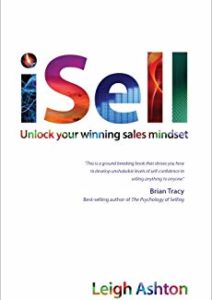Seven questions that will change your life
Problems. Issues. Stuff.
You could be forgiven for thinking today’s business environment is full of all of these. Big ones, small ones. Old ones. new ones. And your sole aim in life seems to be to reduce their number, and reassure yourself that someday, when all these problems have been solved, all will be well and you can get on with what you really want to do.
You know the flaw in this. There’s seven days in the week and none of them is ‘someday’. It’s not going to happen. This is it. Real life. Stuff happens. Are you ever really ‘on top’ of everything? Probably not – which means that when the chips are down you really are going to have to embrace the journey, embrace the issues, look each problem smack in the eye – and get positive.
Most would say they want rid of their problems – yet spend much of their time rooted in those very issues, perfecting them rather than pointing their brains towards the possible solutions. Many tackle those problems with a negative tilt – which means the problems stick around, grow and in many cases get ignored until later when they come back into play, by then three times as big.
Questions that DON’T work
These are the types of questions that are asked by those with a negative disposition. Take a look at them (hopefully for the last time?) as a reminder of how NOT to approach a problem;
- What is your problem?
- Why is it a problem?
- Why do you have this problem?
- What caused it?
- What are your limitations in solving it?
- Who’s to blame?
- Why haven’t you solved it yet?
And so on…
Ask these questions and you stay on the cycle of despair. Constantly asking these questions will get you nowhere. They lead to nowhere. You’re still deeply entrenched in the problem, probably feeling pretty depressed about the whole thing and, crucially, you’re no closer to a solution. And by following the thought patterns encouraged by these questions, you’re building up resentment, which is never recommended.
So the main thing here is that we’re prone to think more IN the problem than above the problem. Immersing yourself in these questions will only end up nurturing your problems, making sure they’re fed and watered – helping them fester and grow.
Break the Cycle
Stop.
You need to break this cycle. So instead, consider another set of questions that will help you solve your sales challenges effectively and in most cases very quickly. With these questions you’ll always produce a plan, always produce a solution.
Dive straight in. Find somewhere you won’t be disturbed, close down those gadgets, and give this your full attention.
Think of a problem that’s been niggling away at you for far too long.
If you wanted to remind yourself of how debilitating your example problem is, then by all means take your problem through the set of questions above. It may make for a reminder of your current approach and how it’s not getting you very far.
Questions to change your life
On the other hand, if you’d rather go straight into solution-mode, go straight to the next set of questions below. Answer them initially in your head and give yourself no more than 10 seconds for each question. Your answers should reflect your gut reaction. If it helps, have someone you trust read the questions out to you – remember, anyone helping you needn’t get to hear your answers as they stay within your own mind, at least for now.
So, taking the issue you identified, answer these questions:
- What do you want?
- How do you want it to be?
- What do you need to get it?
- What resources do you already have that will help you get this outcome?
- Where are you with regards to achieving it?
- What’s the next step you can take towards getting your desired outcome?
- When will you take this step?
Notice how you feel at the end of this sequence of questions.
Rather than remain entrenched in the issue as you would have been (when moving through those initial set of questions) I’d wager that you’re feeling much more positive about the issue you chose to explore. It’s likely you already have ideas you implement straight away.
What’s going on here? Basically by asking those forward facing questions you are starting to train your brain to search for solutions rather than dwell on the problem. This can lead to massive shifts in thinking and in turn the hard results and success you will generate. Just a simple set of questions that can have a massive impact.
Change or perish
What have you tended to do up to now? Nurture your problems? Promote a negative outlook? Remember if you can’t solve issues quickly, can’t turn your brain away from negative thoughts about your everyday issues, then you will definitely miss out. You’ll miss out to those who have developed their thinking and problem solving attributes – maybe to other members of the sales team in your own organisation or to other salespeople in other organisations who will beat you to the sale.
So, whenever you have an issue, challenge, problem, call it what you will, use these seven questions, use them early – and notice how much better your overall performance becomes.


